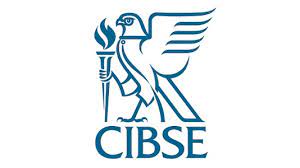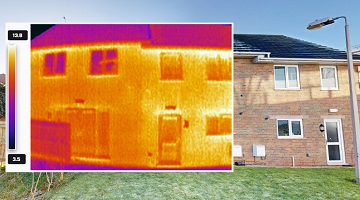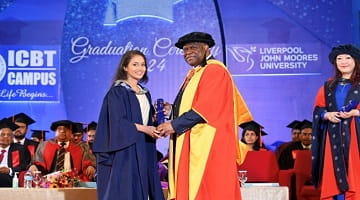Why study Building Services Engineering Degree Apprenticeship at Liverpool John Moores University?
- Prepares graduates for Incorporated Engineer registration with the Engineering Council and Associate membership of the Chartered Institution of Building Services Engineers
- 6 million invested in state-of-the-art teaching facilities
- Dedicated and supportive tutors to guide you through your studies at LJMU
- LJMU ranked 16th in the UK for construction, surveying and planning courses (The Guardian University Guide 2025)
- LJMU ranked 8th university in the UK for building degrees (The Times UK University Rankings 2025)
Deadline for applications: 30th June 2025
About your course
The professionally-accredited BEng (Hons) Building Services Engineering at Liverpool John Moores University features 'real world' projects in order to develop your skills for the workplace.
Modern living depends upon the engineering services that are an integral part of buildings, and these systems consume a significant percentage of the energy used in the UK. Building services engineers operate as part of a professional team alongside architects, structural engineers, quantity surveyors and other construction professionals to ensure that buildings continue to function efficiently while de-carbonising the energy supply.
They need to be technically competent and practical in outlook, but also good communicators as they give advice to a wide range of people.
This programme, which has been developed in partnership with practising professionals, helps you gain the skills required to design complicated building engineering systems that can control internal environmental conditions and minimise energy use, such as the heating, lighting, power, lifts, ventilation, water and utilities, as well as managing their installation, commissioning and maintenance.
Projects are integrated at all levels of the degree, with materials and supervision provided by employers so you can replicate real-life scenarios in your work. After your second year, you may take up a years paid work placement with a building services engineering consultant or contractor (subject to finding a suitable work placement).
Course modules
What you will study on this degree
Further guidance on modules
Modules are designated core or optional in accordance with professional body requirements, as applicable, and LJMU’s Academic Framework Regulations. Whilst you are required to study core modules, optional modules provide you with an element of choice. Their availability may vary and will be subject to meeting minimum student numbers.
Where changes to modules are necessary these will be communicated as appropriate.
Core modules
Introduction to Construction Technology
20 credits
20 credits
This module introduces students to construction techniques associated with the production of high and low rise commercial and industrial framed buildings, both new build and refurbishment.
Science and Materials
20 credits
20 credits
This module enables students to apply appropriate scientific and analytical methods to investigate the performance and behaviour of common building materials. It aims to provide students with an appreciation of the common scientific principles associated with the environmental conditions inside buildings.
Design Project 1
20 credits
20 credits
This module introduces the fundamental skills needed for the design process. It will equip you with the fundamental tools, including the necessary IT skills, to carry out a building services engineering design project and to develop and refine the your written, verbal, graphical and presentation skills.
Electrical and Mechanical Engineering Principles
20 credits
20 credits
This module introduces the fundamental concepts and principles of mechanical and electrical engineering, heat transfer, thermodynamics and fluid mechanics, and the application of these to engineering problems in the built environment.
Engineering Mathematics
20 credits
20 credits
This module aims to build knowledge and understanding of the mathematics essential for engineering and its practical application in an engineering context.
Professional and Digital Skills for Engineers
20 credits
20 credits
This module introduces the software used for professional engineering design, modelling and simulation in the building industry. It also introduces the professional behaviour requirements for engineers alongside the academic and digital literacy skills necessary for further study.
Core modules
Procurement and Contracts
20 credits
20 credits
This module provides an comprehensive understanding of contract management, administration and the influence of procuring suppliers and specialists to optimise contract performance.
Mechanical Engineering for Buildings
20 credits
20 credits
This module develops the student's understanding of the principles of heat transfer, thermodynamics and general engineering and the application of these principles to sustainable and energy efficient design and operation of building engineering systems, plant and equipment. By the end of the module students you should be able to utilise appropriate mathematical methods to solve mechanical engineering problems.
Electrical Engineering for Buildings
20 credits
20 credits
This module aims to further develop an appreciation of electrical principles and relate them to the practical processes applied in the design of electrical engineering services in buildings. You will learn the skills and knowledge required to appreciate industry standard data and analyse the underpinning concepts which are incorporated in typical design techniques. This background knowledge will enable you to complete electrical building engineering design and utilise appropriate mathematical methods to solve electrical engineering problems.
Site Construction Management
20 credits
20 credits
This module develops construction management knowledge and skills in the construction production process, including environmental KPIs, health and safety and hazard identification, planning, logistics, programme development, sequencing and logic, cost forecasting, collaboration, team roles and responsibilities, communication, organisation, conflict and BIM.
Applied Mathematics
10 credits
10 credits
Design Project 2
20 credits
20 credits
This module provides students with the knowledge and skills necessary to interpret the mechanical and electrical building services needs and requirements of a range of simple and moderately complex buildings and develop practical schemes. Students develop and refine the skills necessary for the development, management and successful completion of a significant project, including written, verbal, graphical and presentation skills.
Work Based Learning
10 credits
10 credits
This module introduces students to the necessity of co-ordination between disciplines for construction professionals through an analysis of project management situations, combined with an examination of the need for, and requirements of, continuous personal professional development.
Core modules
Environmental Analysis
20 credits
20 credits
This module aims to develop an understanding of the theory, principles and practices of building energy systems modelling and simulation techniques and to use analytical approaches to the appraisal of environments and design proposals.
Commissioning and Facilities Management
20 credits
20 credits
This module aims to provide an in depth awareness of the key issues of commissioning of building engineering systems, maintenance of such systems and the integration of maintenance with the facilities management regime in buildings.
Low Carbon Systems and Sustainability
20 credits
20 credits
In this module students investigate the environmental consequences of energy use in buildings with particular reference to building engineering systems and services. You will critically evaluate the environmental and economic benefits which are consequent on the specification of various building engineering systems including low and zero carbon technologies and examine processes for the assessment of building energy loads at feasibility and post construction stages.
Design Project 3
20 credits
20 credits
This module aims to enable students to work both collaboratively and individually on realistic projects that facilitate the development and integration of a range of technical and professional skills within the context of building services.
Building Engineering Research Project
40 credits
40 credits
In this module students will complete a substantial piece of individual work and build on their expertise in a Building Engineering subject. In doing so, they will develop their research, time management, presentation and written communication skills.
Your Learning Experience
Excellent facilities and learning resources
We adopt an active blended learning approach, meaning you will experience a combination of face-to-face and online learning during your time at LJMU. This enables you to experience a rich and diverse learning experience and engage fully with your studies. Our approach ensures that you can easily access support from your personal tutor, either by meeting them on-campus or via a video call to suit your needs.
Dedicated personal tutor, plus study skills support
There is a high level of support for students on this course and the needs of part-time students and degree apprentices are thought through. You will be appointed a Personal Tutor when you are inducted onto the course. They will be responsible for assisting you and providing guidance and care on academic and pastoral matters and also on the development of your Personal Development Plans (PDPs) which form an integral part of your programme and development.
In addition each member of staff has surgery hours which allow you to 'drop in' to discuss academic issues on a one to one basis.
Assessment varies depending on the modules you choose, but will usually include a combination of exams and coursework.
All students perform differently depending on how they are assessed which is why we use a combination of assessment methods. These include exams (open and closed book), coursework (projects, laboratory and technical reports) and oral presentations. Your tutors will give prompt and constructive feedback via Canvas (our virtual learning environment), face-to-face or in writing. This will help you to identify your strengths as well as the areas where you may need to put in more work.
Where you will study
What you can expect from your School
This programme is delivered in the Byrom Street complex of LJMUs City Campus. Here you'll find high quality lecture theatres, meeting and seminar rooms plus social spaces and a large cafe. The Avril Robarts Library is just minutes away on Tithebarn Street.
My time at LJMU has been a worthwhile one, I benefitted not only from a first-rate, industry-relevant education delivered by experienced and dedicated lecturers, but also built upon skills I already had. I'm sure this will be very useful in my future career.
Course tutors
Our staff are committed to the highest standards of teaching and learning
-
 Reader
Reader
Professional accreditation/links
This programme provides the academic requirement for ACIBSE and IEng.
This programme partially provides the academic requirement for MCIBSE and CEng.
Accredited by the Chartered Institute of Building Services Engineers (CIBSE) on behalf of the Engineering Council for the purposes of fully meeting the academic requirement for registration as an Incorporated Engineer.

Fees and funding
Tuition Fees:
There are many ways to fund study for home and international students
Fees
The fees quoted above cover registration, tuition, supervision, assessment and examinations as well as:
- library membership with access to printed, multimedia and digital resources
- access to programme-appropriate software
- library and student IT support
- free on-campus wifi via eduroam
Additional costs
Although not all of the following are compulsory/relevant, you should keep in mind the costs of:
- accommodation and living expenditure
- books (should you wish to have your own copies)
- printing, photocopying and stationery
- PC/laptop (should you prefer to purchase your own for independent study and online learning activities)
- mobile phone/tablet (to access online services)
- field trips (travel and activity costs)
- placements (travel expenses and living costs)
- student visas (international students only)
- study abroad opportunities (travel costs, accommodation, visas and immunisations)
- academic conferences (travel costs)
- professional-body membership
- graduation (gown hire etc)
Funding
There are many ways to fund study for home and international students. From loans to International Scholarships and subject-specific funding, you'll find all of the information you need on our specialist funding pages.
Degree Apprenticeships are funded courses, with learning costs being paid to the university by the employer, through the Degree Apprenticeship levy, if a large company, or with the help of the government’s co-investment model, if a smaller company.
If you aren’t already employed by a company that is willing to sponsor you through an apprenticeship, you’ll need to find one. You can do this by regularly checking the Government’s Find an apprenticeship website.
You can also approach an employer yourself to find out whether they would be interested in offering Degree Apprenticeships and ask them to contact us. Our team will be able to explain to them how they can access the correct funding and the next steps.
Information for potential employers
If an employer has a wage bill of over £3 million, it would automatically pay the Government levy and would use this to fund learning via the company Apprenticeship Service Account.
Non- Levy companies can access funding via the Government co-investment model, whereby the Government will fund 95% of the learning costs and the company will fund the remaining 5%.
To access the Government funds, non-levy paying employers are required to set up an account on the Apprenticeship Service and reserve funding for apprentices, no earlier than three months before the course start date. Information regarding setting up an account can be found here. LJMU will still invoice non-levy paying companies for their contribution, but without this account LJMU will be unable to draw down the Government co-investment funding for the apprentices.
Entry requirements
Please choose your qualifications below to view requirements
Grades/points required from qualifications:
Work out how many UCAS points your qualifications are worth using the UCAS Tariff Calculator.
Qualification requirements
A levels
112 UCAS points: Minimum Two A2 levels (Inc. Maths, Physics, Chemistry or Biology)
BTECs
112 UCAS points
International Baccalaureate
Level 4: 112 UCAS points
NVQ
HNC/HND (Non-cognate) Level 4 Entry: Pass HNC/HND (Cognate) Level 4 Entry: Pass HNC (Cognate) Level 5 Entry: Pass HND (Cognate) Level 6 Entry: Pass
Alternative qualifications considered
Foundation degree from LJMU Partner College Level 6 entry: Foundation Degree in Building Services Engineering (electrical or mechanical route) from a LJMU partner college with a mean award mark of at least 40%. Foundation degree from other institutions Level 5 entry: Foundation Degree in Building Services Engineering or other related subject discipline from other institutions with a mean award mark of at least 40%. Prior to starting the programme applicants must have obtained Grade C or Grade 4 or above in English Language and Mathematics GCSE or an approved alternative qualification below: Key Skills Level 2 in English/ Maths NVQ Level 2 Functional skills in Maths and English Writing and or Reading Skills for Life Level 2 in Numeracy/English Higher Diploma in Maths/ English Functional Skills Level 2 in Maths/ English Northern Ireland Essential Skills Level 2 in Communication or Application of Number Wales Essential Skills Level 2 in Communication or Application of Number
International requirements
Other international requirements
Overseas student applicants must have the equivalent qualifications as UK students. In addition they must have achieved an IELTS score of at least 6.
Please Note: All international qualifications are subject to a qualification equivalency check.
How to apply
Securing your place at LJMU
To apply for this programme, you are required to complete an LJMU Degree Apprenticeship form. You will need to provide details of previous qualifications and a personal statement outlining why you wish to study this programme.
If you aren’t already employed by a company that is willing to sponsor you through an apprenticeship, you’ll need to find one. You can do this by regularly checking the Government’s Find an apprenticeship website.
You can also approach an employer yourself to find out whether they would be interested in offering Degree Apprenticeships and ask them to contact us. Our team will be able to explain to them how they can access the correct funding and the next steps.
Just like any other job application, you’ll go through a recruitment process with the employer. Check out our interview tips to help you prepare for your Degree Apprenticeship interview. You’ll also need to meet the entry requirements to attend Liverpool John Moores University just like any other student. To do this, find your course and make sure you meet the requirements of the particular course associated with your Degree Apprenticeship.
To apply for a Degree Apprenticeship course complete the online application form.
Once you have applied you are required to complete and return a skills scan document that is automatically sent to you upon receipt of your application. The skills scan enables the programme team to carry out an initial assessment of the knowledge, skills and behaviors (KSBs) that you have acquired through your previous experience and study.
Following consideration of your skills scan, you and your employer contact will be invited to attend a meeting with the Programme Leader to further discuss the requirements of the apprenticeship, including the KSBs set out within the applicable Apprenticeship Standard.
If your application is successful, you’ll enter into an employment/apprenticeship contract with your employer which will set out the obligations of all parties involved in the apprenticeship.
Your student experience
There's so much more to university than just studying for a degree
Talk to our students
Connect with a current LJMU student through Unibuddy for insights and advice on university life, courses, and more.
See what our students are saying
At LJMU we want you to know you're making the right choice by studying with us. You can see what our students are saying about their experience with us through their reviews on the following websites:
Related Links
News and views
Browse through the latest stories and updates from the University and beyond









The university reserves the right to withdraw or make alterations to a course and facilities if necessary; this may be because such changes are deemed to be beneficial to students, are minor in nature and unlikely to impact negatively upon students or become necessary due to circumstances beyond the control of the university. Where this does happen, the university operates a policy of consultation, advice and support to all enrolled students affected by the proposed change to their course or module.
Further information on the terms and conditions of any offer made, our admissions policy and the complaints and appeals process.









